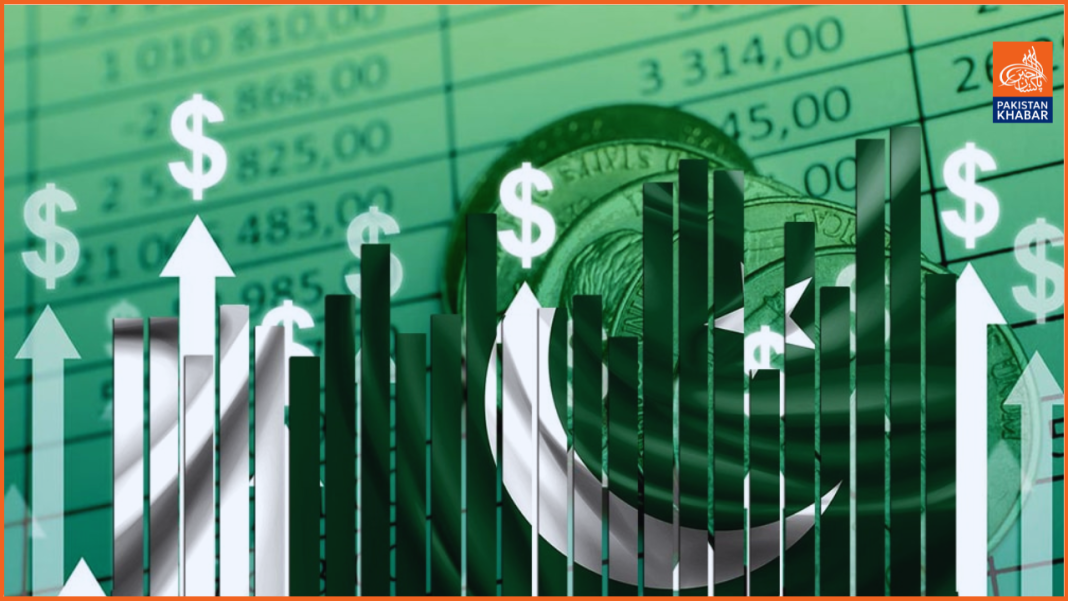The government reported on Wednesday that Pakistan’s economic performance during the current fiscal year has exceeded expectations, with inflation expected to drop further to around 6% in November.
In its monthly inflation outlook, the Ministry of Finance noted that while inflation is on the decline, the industrial sector, particularly large-scale manufacturing (LSM), continues to face difficulties. The report was prepared by the ministry’s economic advisory wing.
Inflation is projected to stay within the range of 5.8% to 6.8% in November, with a further decrease to between 5.6% and 6.5% by December. However, the ministry cautioned that supply disruptions, caused by the federal government’s decision to close motorways and highways for four days, could affect prices during the first ten days of December, as the supply chain resumes.
The key factors contributing to the slowdown in inflation include a high base effect and improved food supplies. Last month, inflation stood at 7.2%, driven mainly by a slowdown in inflation for perishable food items, housing, water, electricity, gas, and fuels.
The central bank has reduced its policy rate by 2.5 percentage points to 15% this month due to the faster-than-expected decline in inflation, which had already reached its medium-term target range in October.
Other factors easing inflationary pressures include tight monetary policy, a sharp decline in food inflation, favorable global oil prices, and low petroleum levy rates. The report highlighted that fiscal consolidation and contained inflation would support economic activity in the coming months.
Pakistan’s economy has shown a sustained recovery in the ongoing fiscal year, with the first four months exceeding expectations. The improvement is driven by declining inflation, a rise in remittances and IT exports, a stable external and fiscal sector, and a downward trend in interest rates. This recovery is expected to support the achievement of the economic targets in the upcoming quarters.
The government has set the economic growth target for the current fiscal year at 3.6%, while the inflation target is 12%. However, political instability and the economic policies required by the International Monetary Fund (IMF) may hinder economic growth.
The ministry noted that the LSM sector is showing signs of recovery, although annual growth remains negative. Monthly performance has shown resilience, with gradual production increases in key sectors like textiles and automobiles. The real sector of the economy continues to benefit from agricultural and industrial policies.
On the agricultural front, wheat crop sowing is progressing to meet the targeted area and production. The government is facilitating timely provision of key inputs to farmers at reasonable prices and has urged provinces to help boost wheat sowing.
The finance ministry also reported a 70.9% increase in imports of agricultural machinery, amounting to $39.6 million. Additionally, di-ammonium phosphate (DAP) offtake saw a 92% increase, while urea offtake decreased by 22% compared to the previous year.
The rise in DAP offtake is attributed to the Punjab government’s disbursement of interest-free loans to small farmers for purchasing essential inputs such as seeds and fertilizers.
Despite challenges in LSM, the ministry forecasts steady export, import, and remittance growth. It predicts exports to range between $2.5 billion and $3 billion, imports between $4.5 billion and $4.9 billion, and remittances between $2.8 billion and $3.3 billion in November. The government remains concerned about securing planned loans despite the IMF deal, but the increase in exports and remittances has helped improve the external account position, which recorded a surplus of $218 million for the July-October period of FY25, compared to a deficit last year.




